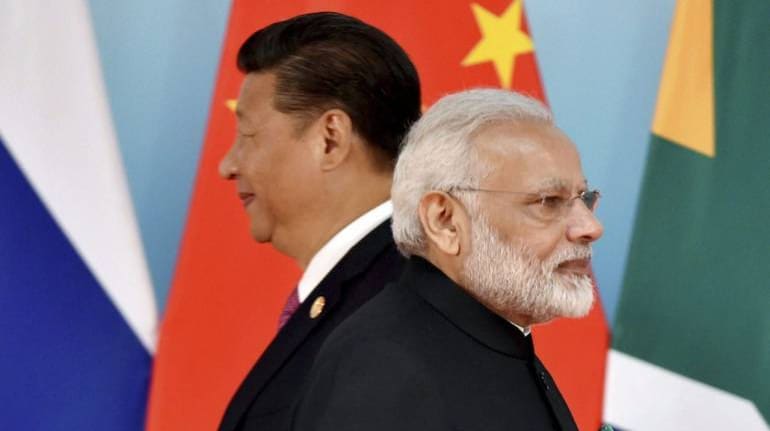



With India and China making up one third of the humanity, the future of Sino-Indian relations is of utmost importance not only to the people of these two countries, but also to Asia and the world.
China has a grand strategy for global domination. It woke up to the importance of Indian Ocean well before India did. Ever since 2005, when the term ‘string of pearls’ was first coined, China has strung together a chain of friendly ports all along India and beyond: Myanmar in the east, Sri Lanka in the south, and the Maldives and Tanzania in the west. The linchpin of all these is Gwadar in Pakistan, from where the China-Pakistan Economic Corridor will run onwards to Kashgar in China’s Xinjiang region. With investments in Bangladesh, Nepal, and other neighbouring countries, along with frequent intrusions into the Indian territory, New Delhi can sense the Dragon at its doorstep. Economically and militarily, India is not superior to China; however, the global environment has offered India the opportunity to play a leading role in the international space.
There are four points that highlight how India can stay relevant to its neighbourhood, while tackling China on the side. First, India needs to understand the Chinese operating system, particularly in South and Southeast Asian neighbouring countries. It needs to promote multi-polarity and democracy to make itself more relevant in the neighbourhood.
Second, India needs to develop an alternative economic model to the neighbouring countries. While we cannot compete with China, economically and militarily, we can provide the neighbourhood with the much-needed space by opening our markets for trade and investment. The neighbouring countries can ultimately develop themselves with the Indian technical and knowledge power assistance.
Third, India needs to have ‘diplomacy for development’, which can be achieved in the following areas:
Despite the difficulties and setbacks, India-China relationship continues to grow. Both have undertaken several initiatives to mend and reset their relationship and have shown willingness to engage in more dialogue. As Prime Minister Modi remarked at the Shangri-La Dialogue, “Asia and the world will have a better future when India and China work together with trust and confidence while being sensitive to each other’s interest.” However, for this to happen, New Delhi needs a new modus vivendi which will pave a new era in India-China relations and help it stay relevant in its neighbourhood.
India’s upcoming G20 Presidency, coupled with its 75th year of independence, will have significant implications for it as a rising power in the world. India must use this opportunity to project its power with prudence, especially with China. It is time for India to utilise both hard and soft power to fulfil its national and global interests.
(This article first appeared in the ORF.)
C Joshua Thomas is Distinguished Fellow in International Relations at CPPR, Kochi, Kerala. Views are personal and do not represent the stand of this publication.
Discover the latest Business News, Sensex, and Nifty updates. Obtain Personal Finance insights, tax queries, and expert opinions on Moneycontrol or download the Moneycontrol App to stay updated!
Find the best of Al News in one place, specially curated for you every weekend.
Stay on top of the latest tech trends and biggest startup news.